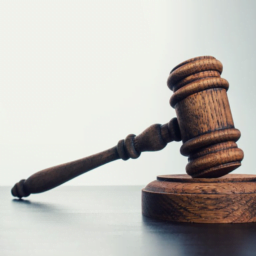Introduction
The concept of mental illness, health, and its effects on the sociological and personal spheres of a person’s life has time and again been a matter of attention. The census data suggests that 2.7% of the population suffering from disabilities to be dealing with mental illness and roughly 5.6% of them to be suffering from mental retardation in certain varying degrees.[1] The heightened proliferation of mental health advocacy has not left the law and judiciary in isolation. It bears significant influence on the recognition and affirmation of mental illness as a recognized disability. This recognition plays a significant role in protecting a person from such violation of their rights that could be induced by the individual’s mental health conditions and in providing them with such protection and opportunities that could reduce the inequality which could arise based on the unlevel playing ground created for them based on their disabilities. Law also bears the responsibility to provide accessible treatment and help in this regard efficiently. The de-stigmatization and taking down of the dominant narrative of looking at mental disability negatively depends and is achieved to a larger extent by the judgments, guidelines, and opinions of the judiciary which further shapes the society in correcting these pre-conceived notions.
Acts and provisions in the sphere of mental disabilities
The Mental Healthcare Act, 2017[2] demarcates the nature and essential parameters for ascertainment and labelling a particular adverse state of mind as mental illness. The definition explains a mental illness to be a disorder of basic facets such as thinking, mood, memory, etc. which is of such a nature that impairs the cognitive abilities of an individual in terms of fundamentally impaired decision and recognition skills imperative to essential demands of life.[3] Further, the ratification of the United Nations Convention on the Rights of Persons with Disabilities (UNCRPD) by India was a substantial step towards the formation of the Right of Persons with Disability Act, 2016 which defines a “person with a disability” to be suffering broadly, among others, from such mental and intellectual impairment which would act as an inevitable barrier to the individual’s interaction and participation in society[4]. Clause 2 of the UNCRPD also suggests that states should act for prevention and prohibition of discrimination against people with disability and their protection against the same.[5] Further, Clauses 3 and 4 states that certain reasonable steps should be taken in this regard[6] and those shall not be termed as discriminatory on the face of it[7]. A reasonable inference can be drawn here suggestively, this aligns with the principle of affirmative actions.
Factual overview of the case
The facts of the case have been lucidly put forth in the 97-page long judgment.[8] It is suggested that the appeal considering Section 47 of the Persons with Disabilities (Equal Opportunities, Protection of Rights and Full Participation) Act, 1995 was allowed by the Division Bench of the Gauhati High Court[9]. The appellant in the case had been an officer of the Central Reserve Police Force since 2001 and was transferred to Ajmer while being an Assistant Commandant. A complaint was lodged against the appellant by the Deputy Inspector General of Police on grounds that the appellant had outrightly mentioned that he was obsessed with either killing or being killed and had threatened to shoot. An enquiry was conducted by the department and the appellant was ordered to be put under suspension based on the six charges that were mentioned against him which later turned to eight upon the initiation of the enquiry report and a notice. The medical history of the appellant suggests that he had been suffering from Obsessive Compulsive-Disorder (OCD) and secondary major depression since 2009 and after undergoing continuous but multiple therapy and psychiatric treatments, he was stated to have been dealing with 40 to 70 per cent disability and was termed to be permanently disabled by Dr. Ram Manohar Lohia Hospital, Delhi which ended up in him being put under the S5(P) category and was declared unfit for duty.
Provisions analysed in the course of arguments
Certain key provisions of the RPwD Act were referred to and stated in the course of arguments and subsequently in the judgment. Section 3 of the RPwD Act puts the onus of ensuring that no violation of rights of people with disabilities in areas of equality, life, dignity, and respect be done, on the government.[10] This section essentially assures protection against discrimination and for the basic rights of people with disabilities to be upheld. Further, Section 2(h) of the act provides an expansive definition of the term “discrimination” by relating it to disabilities but not restricting it to the presence of only disabilities[11]. This had a direct bearing on the case wherein the court faced the question of ascertaining the role and degree of the appellant’s disability in the discriminatory proceedings against him. The application of Section 2(h) of the RPwD rendered the decision that the presence of disability had to be one of the factors and not the sole factor in propagating such misconduct that ended up in the instigation of the discriminatory proceeding. In addition, Section 20 of the act was outlined in the course of the arguments as it provides a sort of protection to the employees in respect of discrimination undertaken by the government. Further Section 20 (4) suggests that an employee be shifted to some other post of equivalent pay scale and benefits in case the acquired disability renders them unfit for carrying out the services required, but, this does not allow a government to dispense the employee or reduce their rank solely based on an act caused by such disability.[12]
Judgment and its analysis
The apex court in its judgment held that such proceedings which are based on instances of lack of discipline induced by mental disabilities in some degree or the other, tend to be indirectly discriminatory in the sense that people who suffer from mental disabilities are more likely to be subjects of such proceedings than those who are not, simply based on the acts induced by impairment caused due to the condition of their mental health. There were certain important facets that arose from the judgment in this realm. The presence of mental disabilities as one factor or the other and not necessarily as the sole factor is of importance for an individual to claim protection under the Rights of Person with Disabilities Act, 2016. This promotes inclusivity and extends the veil to cover all those people with disabilities in whose instances the mental disabilities might not have had been the major cause of the atypical behaviour and action but some sort of gross violation of the rights would have happened if the protection was not extended. The degree of control by an individual over their actions irrespective of the presence of a mental disability does not completely nullify the influence of the same on the conduct. The negative socioeconomic and professional implications of the recognition and awareness of an individual’s mental disability in society were discussed. The stigma against such a fraction of the society, the negative impact on their work and social life, and the deprivation of material and intellectual support was outlined by the court and it was suggested that providing people with disabilities a reasonable accommodation and handling cases of professional matters by not applying a one size fit all approach was very important.
Hence, the court ruled for the appellant to be entitled to a suitable post of equivalent pay scale and service benefits as before and his mental conditions to be taken into consideration for the same.[13] The condition that the post that had to be assigned to the appellant next should not have the appellant being in the possession or control of any firearms or equipment which could possibly cause a danger to the life of himself for others around him was mandated by the apex court.
Conclusion
The significance of the judgment can be attributed to the effect it had and would have on the treatment of people with disabilities hereon. The atypical behaviour with regards to the societal definition of “normal” way of behaviour, functioning, and interaction is inevitably the effect and the by-product in some cases of mental disabilities and puts such an individual at a disproportionate disadvantage to others thereby making them highly susceptible to disciplinary actions. This landmark judgment works as a protector and upholder of their rights along with providing much-needed affirmative action to some extent. Significant societal ramifications of the judgments can be seen as a projection de-stigmatizing negative prejudice and biases against the presence of mental disability and its relation to an individual’s character and capabilities.
Author(s) Name: Snigdha (Gujarat National Law University, Gandhinagar)
References:
[1] Kumar, S. G., Premarajan, K. C., Kattimani, S., & Kar, S. S., Epidemiology of mental disability using Indian Disability Evaluation Assessment Scale among general population in an urban area of Puducherry, India, 64(1) J Postgrad Med., 2018.
[2] Mental Health Care Act, 2017, No. 10, Acts of Parliament, 1949 (India).
[3] Mental Health Care Act, 2017, § 2(s) No. 10, Acts of Parliament, 1949 (India).
[4] The Rights of Persons With Disabilities Act, 2016 § 2(s), No. 46, Acts of Parliament, 1949 (India).
[5] United Nations, Convention on the Rights of Persons with Disabilities, 2515 Treaty Series art. 2, 2006.
[6] United Nations, Convention on the Rights of Persons with Disabilities, 2515 Treaty Series art. 3, 2006.
[7] United Nations, Convention on the Rights of Persons with Disabilities, 2515 Treaty Series art. 4, 2006.
[8] Ravinder Kumar Dhariwal &Anr. v. Union of India, LL 2021 SC 751.
[9] The Persons with Disabilities (Equal opportunities, Protection of Rights and full participation) Act, 1995 § 47 No. 1, Acts of Parliament, 1949 (India).
[10] The Rights of Persons With Disabilities Act, 2016 § 3, No. 46, Acts of Parliament, 1949 (India).
[11] The Rights of Persons With Disabilities Act, 2016 § 2(h), No. 46, Acts of Parliament, 1949 (India).
[12] The Rights of Persons With Disabilities Act, 2016 § 20(4), No. 46, Acts of Parliament, 1949 (India).
[13] Ravinder Kumar Dhariwal &Anr. v. Union of India, LL 2021 SC 751.















